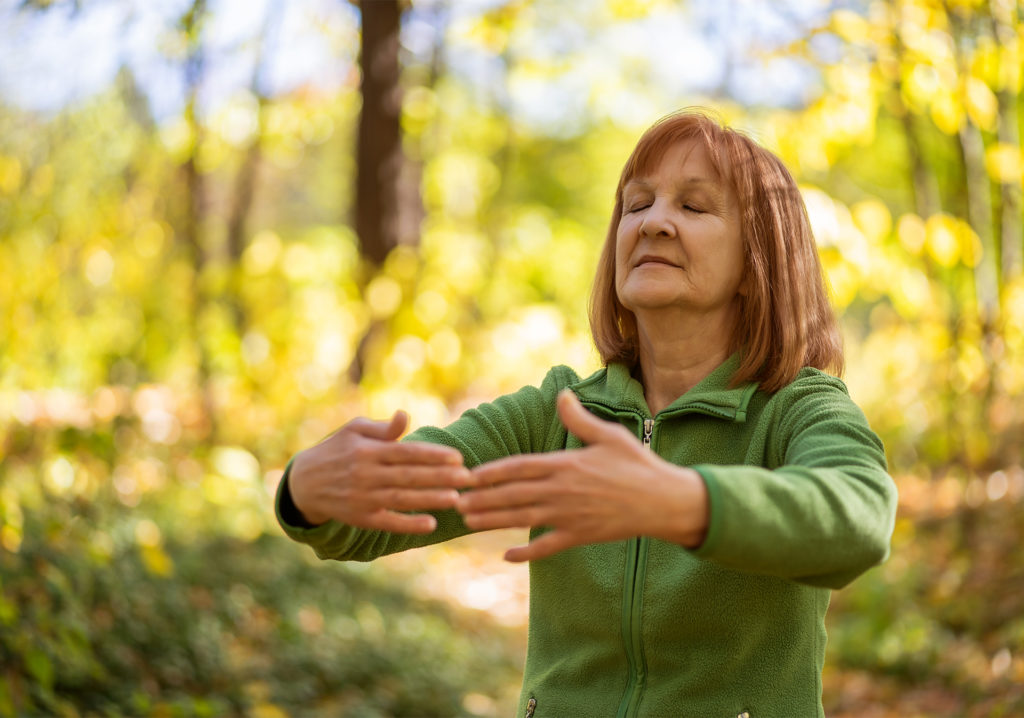Physical Signs Of Stress You Need To Watch For, And How To Combat Them

CABA, the wellbeing charity, highlights how your body is giving you valuable warning signs
Considering the year we’ve all collectively experienced, it’s unsurprising to hear that the multiple lockdowns we’ve endured and the constant uncertainty of the pandemic has left 39% of us feeling more stressed.
Even before the first lockdown in 2020, our research found that 4 in 10 workers felt so stressed in their daily lives that they were close to breaking point.
Now, with a staggering 1.9 million monthly Google searches related to stress and a huge rise in searches such as ’stress symptoms’, we’re clearly looking for answers and guidance.
It’s inevitable that most of us will suffer stress. It’s a condition most of us have experienced at some point. However, exposure to long-term (chronic) stress can have a real impact on our physical wellbeing.
When we’re suffering from long-term stress, our body’s autonomic nervous system, which controls your heart rate, breathing, vision changes and more, is working in overdrive. While its built-in stress reaction, the “fight-or-flight response,” is designed to help the body face stressful situations, overexposure can cause wear and tear. This can result in physical health issues.
Physical symptoms of stress
- Aches, pains and tense muscles
- Chest pain or feeling like your heart is racing
- Exhaustion or trouble sleeping
- Headaches, dizziness or shaking
- High blood pressure
- Muscle tension or jaw clenching
- Stomach or digestive problems. These can include diarrhoea, constipation and nausea
- Weak immune system
- Frequent colds and infections
As well as these, long-term stress can lead to emotional and mental health symptoms, such as:
- Anxiety or irritability
- Depression
- Panic attacks
- Sadness
How to avoid being overwhelmed
It’s incredibly important to listen to our bodies, especially if we’re experiencing any of the symptoms suggested above. Stress and symptoms of stress need to be taken seriously, because as we’ve seen, it can cause real issues and even damage to our bodies, as well as our overall mental wellbeing.
Unfortunately, for many of us, stress is unavoidable, and living through a global pandemic is likely, for some, to have brought on the feelings and symptoms associated to stress. This is clearly demonstrated by the peaks in Googling the term ‘stress’ at the beginning of each lockdowns we’ve experienced. So, if we can’t avoid stress, how can we stop it from becoming overwhelming?
Diet and exercise
Even a brisk walk can be enough to burn through some of that nervous energy created by stress, and sport is even better. Or if stress has left you feeling exhausted, some gentle yoga or a walk can actually help replenish your depleted energy levels.
Eating well is another important factor in combating stress. While we shouldn’t deprive ourselves of treats, or become obsessive about our diets, eating and sleeping well are huge mood boosters, and will help to keep things in perspective.
Focus on the positives
It can be human nature for us to think only about what we haven’t achieved each day. Many of us judge our successes by how much work we’ve still got left to do. It’s important to always sit back and think about what we have actually achieved.
Set realistic goals for each day, week and month. Doing so will narrow your view and help you feel more in control of the moment and long-term tasks.
Consider practising gratitude each day and thinking about what you’re thankful for. Dedicating time to thinking about the positives in your world will work towards improving your mindset.
Be strong
Don’t be afraid to say ‘no’ if you’re having additional tasks thrown at you. For many of us, the fear of saying ‘no’ to our colleagues, bosses and even family members and loved ones outweighs the fear of the additional stress this is likely to cause us.
Saying no will promote setting healthy boundaries with those around you and will open a dialogue which will allow you to talk through what your focus is currently on.
It’s also important to accept that you cannot control everything, and that at times, asking for help is the best option.
Learn how you can let go of worrying about situations you can’t change and turn your focus to things you can manage:
- Challenge your worries, and consider whether you’re looking at a situation in a more negative light than it truly is
- Figure out if your concern is solvable, or unsolvable. Problem solving is a lot more constructive than worrying, and will help you work towards conclusions
- When you feel yourself worrying, try to interrupt these thoughts with activities, exercise and relaxing mindfulness
Focus on relaxing
Dedicating a small portion of your day to relaxing will not only give you something to look forward to but will give you that all-important opportunity to switch off. Try relaxation activities, such as meditation, yoga, tai chi, breathing exercises and muscle relaxation.
Self-care is often sniffed at but has never been more important. Simple things such as treating yourself to a long bath after a tough day, or even watching a couple of episodes of your favourite feel-good series will go a long way towards improving your mental wellbeing. It will also help you compartmentalise the negative emotions you may be experiencing.
About CABA
CABA, the Chartered Accountants’ Benevolent Association, was set up in 1885 to serve members of the Institute of Chartered Accountants in England and Wales (ICAEW), student accountants and their families.
For more advice, visit CABA’s dedicated mental wellbeing support page, which has information on how we can help you take care of your mental wellbeing and support the people around you. With self-help resources, interactive online tools, and professional, one-to-one services, there’s something for everyone.








